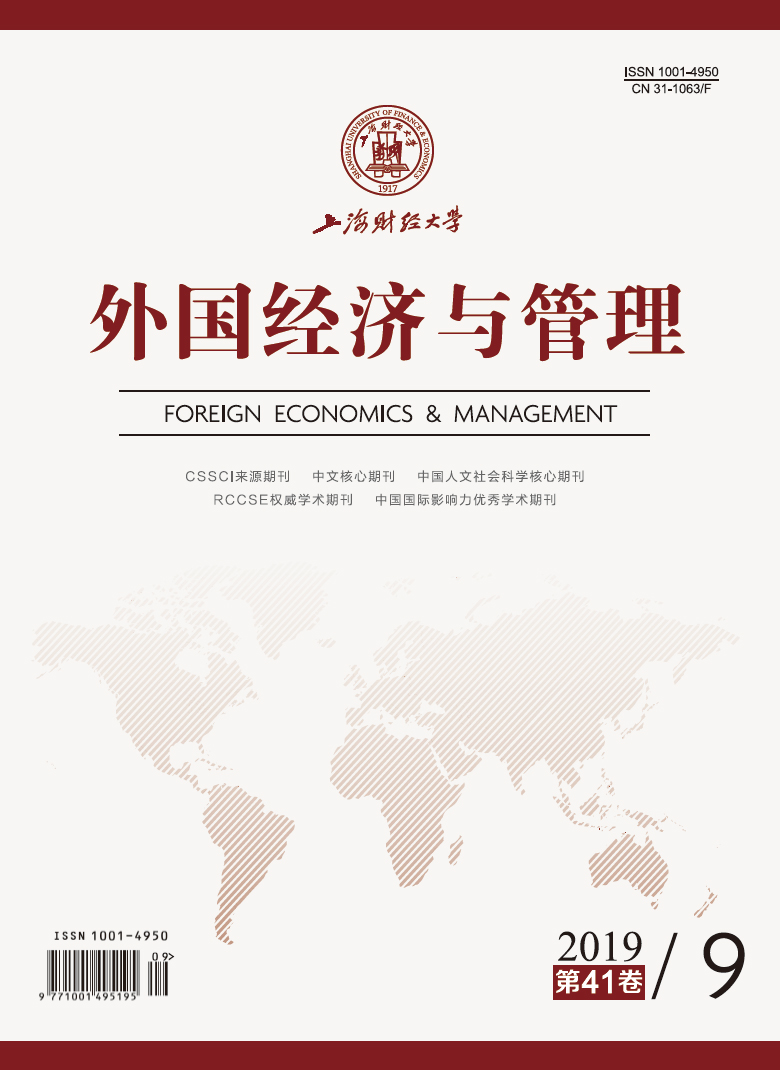Student entrepreneurs are favored by the government, universities and academic community due to their high growth potential. From the perspective of identity, this paper systematically reviews the literature around " the uniqueness of student entrepreneurs”, " how to construct the entrepreneurial identity and manage the dual identities for students” and " how to transform the identity of student entrepreneurs and the challenges they face”. The findings are as follows: The uniqueness of student entrepreneurs lies in the instability of student identity and entrepreneurship, and the contradiction and unity between them; The uniqueness of student entrepreneurs’ identity management lies in the need to balance the boundary between student identity and entrepreneur identity, including four constructive states: acquisition, moratorium, diffusion and foreclosure of entrepreneur identity, and four management strategies: identity following, identity devouring, identity differentiation and identity expansion; The transformation from students to entrepreneurs involves entrepreneurship construction and student deconstruction, including the transformation from students to potential student entrepreneurs, from potential student entrepreneurs to student entrepreneurs, from student entrepreneurs to professional entrepreneurs, which is the result of the interaction of individuals, families, universities and districts. Therefore, this paper outlines the integrated framework of student entrepreneurs’ identity construction on the basis of distinguishing and analyzing the scope, type and identity of student entrepreneurs, explaining their identity construction and management strategies, and summarizing the influencing factors of their identity transformation. The shortcomings are summarized as follows: First, the classification and inherent heterogeneity of student entrepreneurs have not been paid attention to; Second, the mechanism between student identity and entrepreneurship has not been explained; Third, there is a lack of long-term follow-up research on the sustainable development of student entrepreneurs; Fourth, The outcome and mechanism of the dual identities of student entrepreneurs have not been paid attention to. Finally, some future directions are suggested as follows: Distinguishing the differentiated characteristics of student entrepreneurs’ behavior; Revealing the contingent boundary of the interaction between student identity and entrepreneur identity; Expanding the driving factors of student entrepreneurs’ identity construction based on the event system theory; Analyzing the outcome effect of student entrepreneurs’ dual identities and entrepreneurial activities; Exploring the unique characteristics of student entrepreneurs’ identity construction in the team context.
 / Journals / Foreign Economics & Management
/ Journals / Foreign Economics & ManagementForeign Economics & Management
JIN Yuying, Editor-in-Chief
ZhengChunrong, Vice Executive Editor-in-Chief
YinHuifang HeXiaogang LiuJianguo, Vice Editor-in-Chief
Student Entrepreneurs from the Perspective of Identity:A Literature Review and Prospects
Foreign Economics & Management Vol. 41, Issue 09, pp. 122 - 138 (2019) DOI:10.16538/j.cnki.fem.2019.0802.003
Summary
References
Summary
1. Guo Leizhen. Global college students’ entrepreneurial intentions’ distribution features and influence factors in recent years: Based on “GUESSS” data[J]. International and Comparative Education, 2016, (9): 47-54.
2. Liu Yuexiu. Exploring factors that influencing the will of college student enterprising: Agricultural university as an example[J]. Research in Educational Development, 2013, (9): 48-53.
3. Wang Jingjing, Han Yuanxiang. Du Jingjing. Identity construction model of undergraduate entrepreneur[J]. Journal of Management Case Studies, 2017, (4): 381-390.
4. Xiao Lu, Fan Ming. Study on college students' entrepreneurial motivation: From social network perspective[J]. Forum on Science and Technology in China, 2013, (2):134-138.
5. Xu Xiaozhou, Ye Yinghua. Influencing factors of undergraduates' entrepreneurial cognition and its adjustment strategies[J]. Educational Research, 2010, (6): 83-88.
6. Ahsan M, Zheng C, Denoble A, et al. From student to entrepreneur: How mentorships and affect influence student Venture launch[J]. Journal of Small Business Management, 2018, 56(1): 76-102.
7. Backes-Gellner U, Moog P. The disposition to become an entrepreneur and the jacks-of-all-trades in social and human capital[J]. Journal of Socio-Economics, 2013, 47(47):55-72.
8. Bergmann H. The formation of opportunity beliefs among university entrepreneurs: An empirical study of research-and non-research-driven venture ideas[J]. The Journal of Technology Transfer, 2017, 42(1): 116-140.
9. Beyhan B, Findik D. Student and graduate entrepreneurship: Ambidextrous universities create more nascent entrepreneurs[J]. Journal of Technology Transfer, 2018, 43(5):1346-1374.
10. Campopiano G, Minola T, Sainaghi R. Students climbing the entrepreneurial ladder: Family social capital and environment-related motives in hospitality and tourism[J]. International Journal of Contemporary Hospitality Management, 2016, 28(6):1115-1136.
11. Choi K, Park J, Cho D, et al. The impact of university support on the creation of student entrepreneurs: Evidence from South Korea[J]. Entrepreneurship Research Journal, 2018, 8(1): 1-14.
12. Hayter C S, Lubynsky R, Maroulis S. Who is the academic entrepreneur? The role of graduate students in the development of university spinoffs[J]. Journal of Technology Transfer, 2017, 42(6):1-18.
13. Kwong C, Thompson P. The when and why: Student entrepreneurial aspirations[J]. Journal of Small Business Management, 2016, 54(1): 299-318.
14. Marchand J M, Hermens A H. Student entrepreneurship: A research agenda[J]. International Journal of Organization Innovation, 2015, 8(2): 266-281.
15. Marchand J, Sood S. The alchemy of student entrepreneurs: Towards a model of entrepreneurial maturity[J]. International Journal of Entrepreneurship and Innovation Management, 2014, 18(1): 75-92.
16. Nabi G, Holden R, Walmsley A. From student to entrepreneur: Towards a model of graduate entrepreneurial career-making[J]. Journal of Education and Work, 2010, 23(5): 389-415.
17. Nielsen S L, Gartner W B. Am I a student and/or entrepreneur? Multiple identities in student entrepreneurship[J]. Education+ Training, 2017, 59(2): 135-154.
18. Politis D, Winborg J, Dahlstrand A L. Exploring the resource logic of student entrepreneurs[J]. International Small Business Journal, 2012, 30(6): 659-683.
19. Saukkonen J. From a student of startup business to a startup employee or entrepreneur: Study on career narratives of students in entrepreneurial programs in a university[J]. Journal of Educational Issues, 2017, 3(1): 214-235.
20. Shirokova G, Osiyevskyy O, Bogatyreva K. Exploring the intention–behavior link in student entrepreneurship: Moderating effects of individual and environmental characteristics[J]. European Management Journal, 2016, 34(4):386-399.
Cite this article
Chen Jianan, Xing Yiwen, Chen Wu. Student Entrepreneurs from the Perspective of Identity:A Literature Review and Prospects[J]. Foreign Economics & Management, 2019, 41(9): 122-138.
Export Citations as:
For
ISSUE COVER
RELATED ARTICLES




 , 1, 2
, 1, 2 8242
8242  8372
8372

